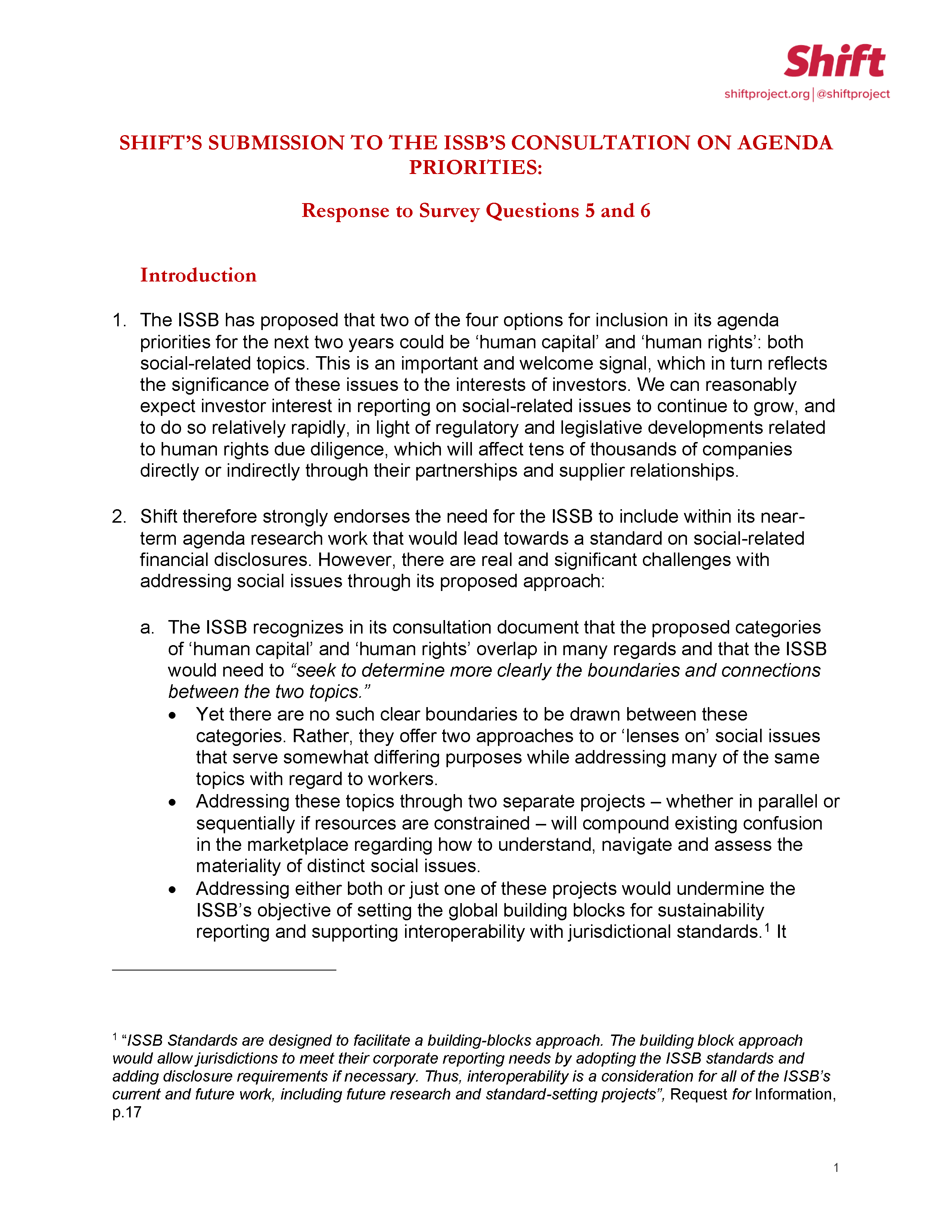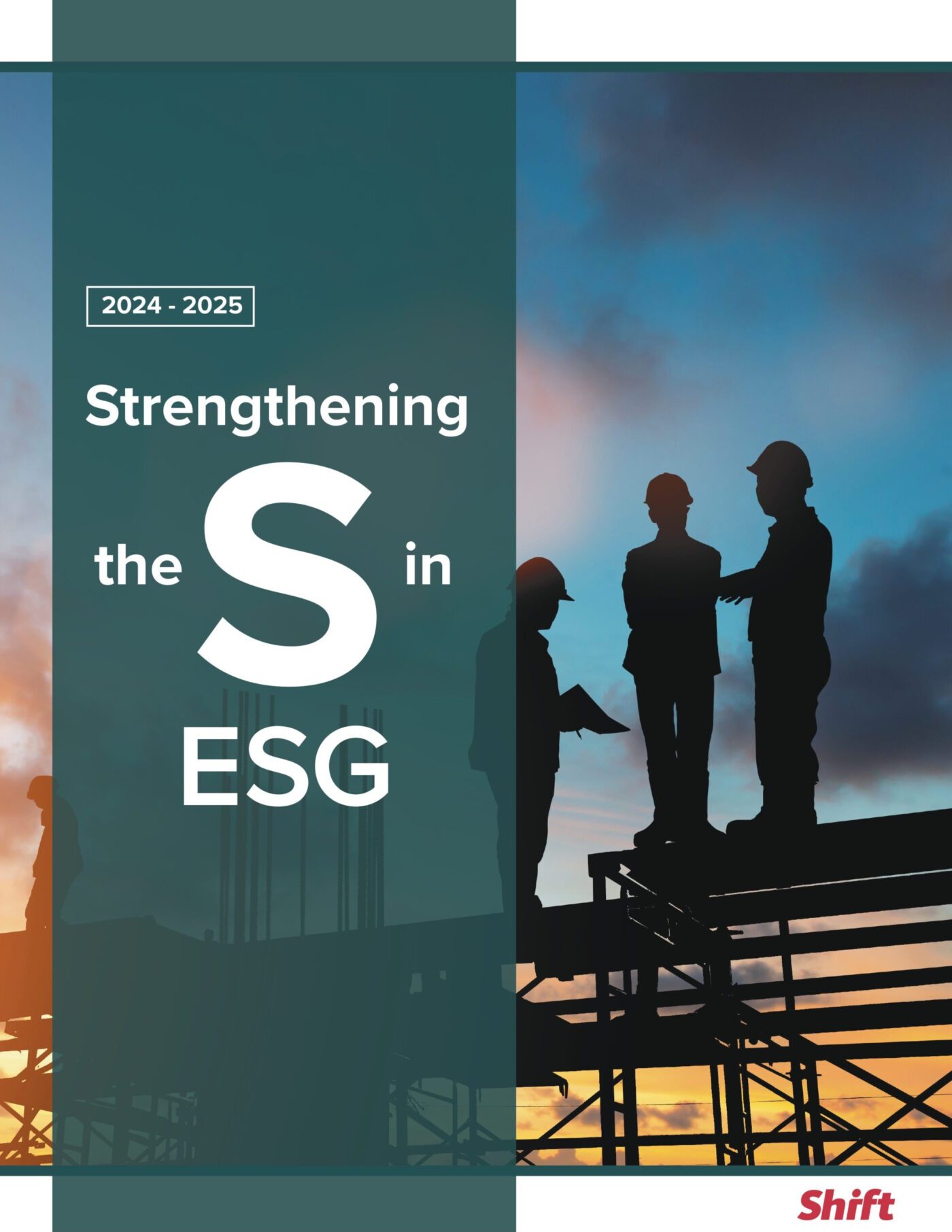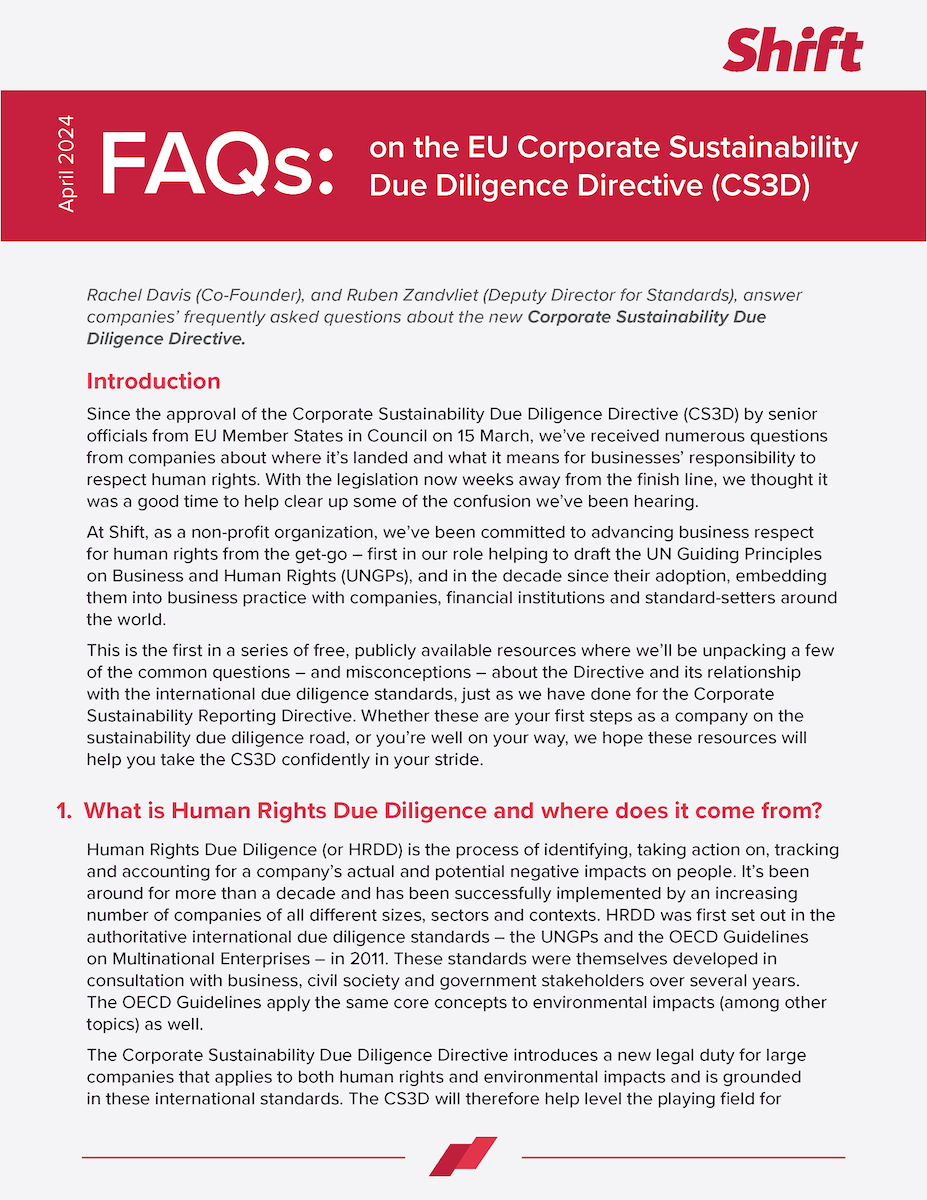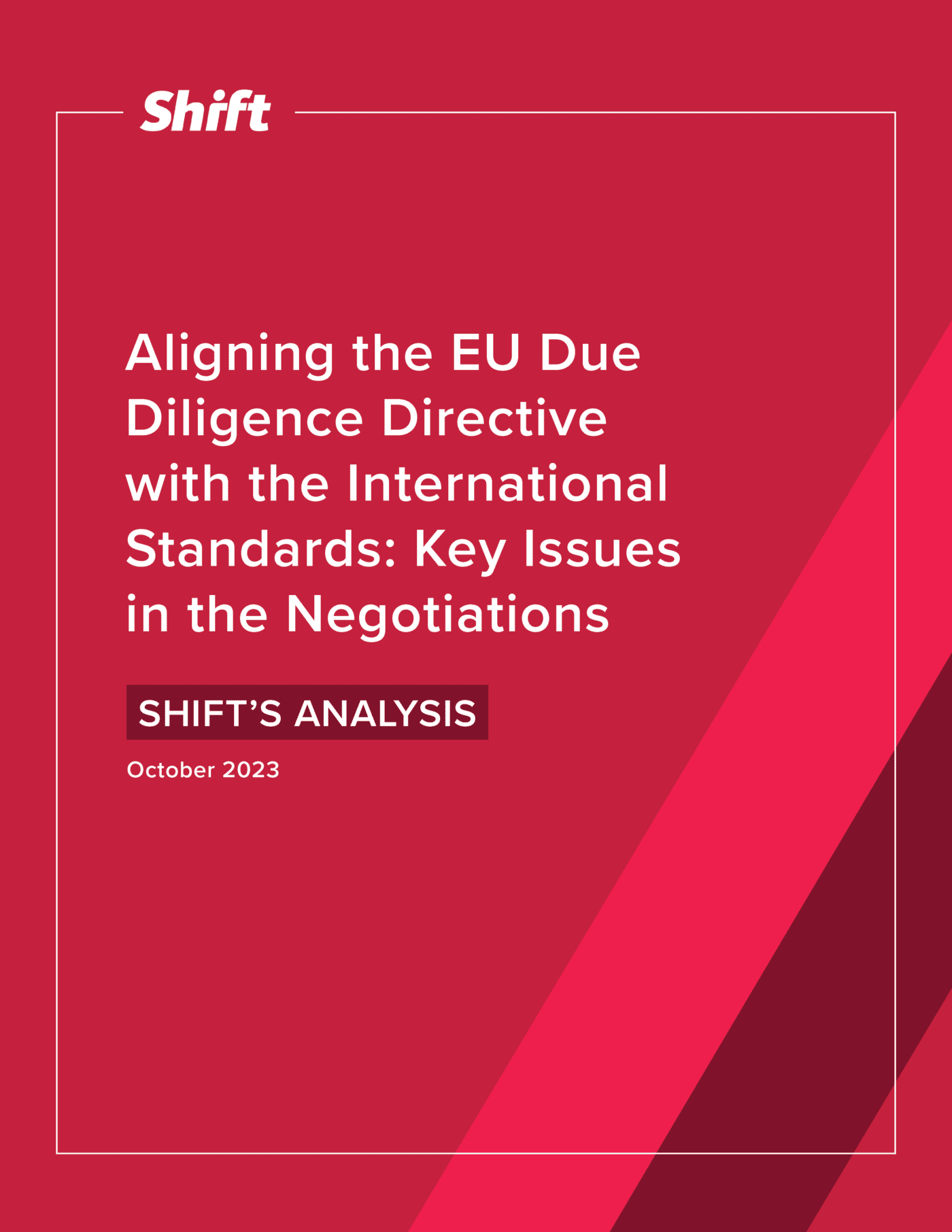The ISSB has proposed that two of the four options for inclusion in its agenda priorities for the next two years could be ‘human capital’ and ‘human rights’: both social-related topics. This is an important and welcome signal, which in turn reflects the significance of these issues to the interests of investors. In light of regulatory and legislative developments related to human rights due diligence, this interest in reporting on social-related issues is set to continue increasing at a rapid rate.
Shift therefore strongly endorses the need for the ISSB to include within its near-term agenda research work that would lead towards a standard on social-related financial disclosures.
This submission to the ISSB’s public consultation sets out the key challenges with addressing social issues through its proposed approach, including the difficulties arising from its proposed categorization of ‘human capital’ and ‘human rights’. It proposes an alternative approach that would focus instead on the development of a cross-cutting social standard that would align with the ISSB’s stated objectives by:
- encompassing issues relevant to both human capital and human rights, avoiding any need to draw boundaries between them, and without needing to address the specific topics they cover in detail,
- meeting the most essential needs of the providers of capital regarding material social-related issues by enabling them to assess the extent to which any company is equipped in its core governance, strategy and risk management to identify and manage social-related risks in its operations and value chains
- establishing the global, foundational building blocks for reporting on social issues, following much the same approach as the ISSB Climate standard S2: mirroring the structure of standard S1 on General Requirements, but extending beyond its content by addressing significant factors particular to social-related issues
- being coherent and interoperable with the existing European Sustainability Reporting Standards (ESRS) on social issues, including by providing a common understanding of the relevant architecture of social-related topics in sustainability reporting
- providing a resource-efficient project that the ISSB could reasonably undertake in its immediate work plan, being (a) broader but less granular than either of the two proposed projects, (b) able to leverage substantial existing resources including the international standards on human rights due diligence and the ISSB’s own CDSB Framework for Reporting Environmental and Social Information.
The submission sets out the detailed rationale for this approach, the benefits it would bring and the resources on which it could draw.




